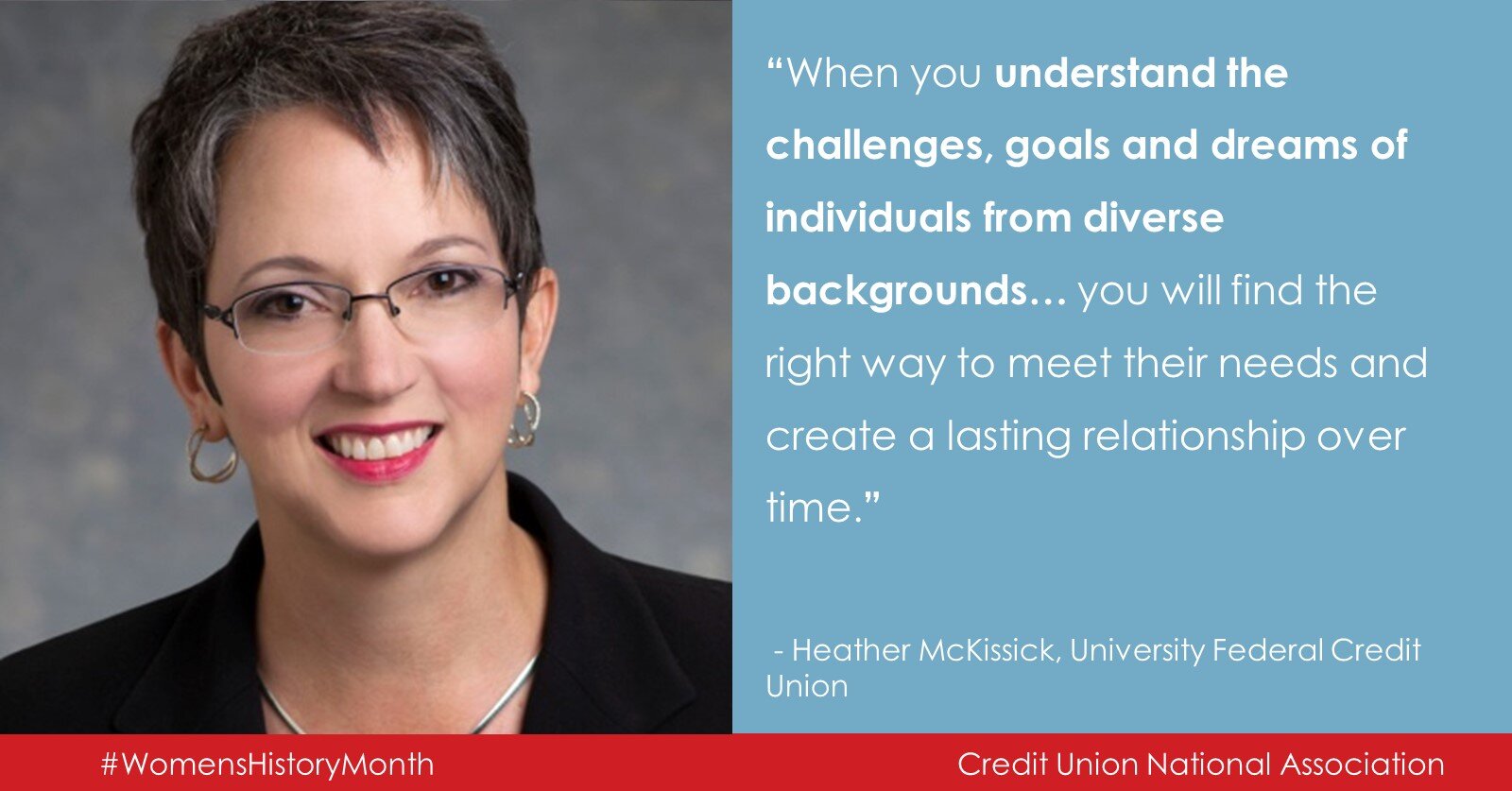Why Financial Inclusion Means More Now than Ever
The credit union movement was built on the principle of financial inclusion, ensuring that everyone – especially those of poor and modest means – had access to the cash and credit they needed in hard times. That could not be more relevant now. During these times of crisis, credit unions are stepping up for their Members and communities in an unparalleled fashion – extending emergency relief, supporting people where they are, and providing them hope for the future. Now more than ever, we see how financial health is a social justice issue, and you cannot have justice without fairness and inclusion. It’s important for leaders in our field to make the effort to deeply understand a wide variety of perspectives if we want to be effective in giving back.
In March 2020, I was honored to be featured as part of a Q&A series with female leaders in the credit union movement, in honor of Women’s History Month. I never take the opportunity to be featured in a news outlet lightly, and I always do my best to provide information that is thoughtful, encouraging and inspires others. A few themes emerged from this interview: what it means to me to practice equality, how hurdles have strengthened my career and what others in my field need to know about the credit union movement.
Here are the highlights from the CUNA.org interview:
Q: In honor of Women’s History Month, what does diversity, equity and inclusion (DEI) mean to you?
A: I’ve always appreciated that the word “equity” means “investment” just as much as it can mean fairness. When we value equity, we are not only valuing the importance of giving all people what they uniquely need to be successful, it also means we have a vested interest in doing so, because it will mean mutual success in the end.
Q: Tell us about a hurdle that you overcame during your career and how it shaped your drive to succeed.
A: From an early age I have often been the only woman in the room. My first job out of college was working directly for the CEO of a financial institution. This was during a time when most of the women in the organization were administrative assistants, then called “secretaries,” most of whom were much older. But instead of being jealous or impeding my success, they rallied around me, gave me the support and information I needed behind the scenes, and fueled my success. I learned then that women helping women can be the key to success in a professional environment, and have since embraced the idea of supporting other women and helping bring the younger generation along. This approach has motivated me and made a tremendous difference in my career growth.
Q: What piece of advice would you give to other professionals in the credit union movement?
A: One of the biggest obstacles for young professionals who want to lean in to a service-oriented, not-for-profit career is the fear of not being able to get fairly paid for that work, or have opportunities for growth. But the biggest achievers take leaps of faith and see the potential to be paid for work that aligns with their mission. I always advise others to not limit themselves in this category; if the world needs it, you are good at it and have a passion for it, there is a way. Across the credit union movement, individuals are finding this alignment: they are discovering that they can use their skills, be passionate about member service and help the credit union solve for what their community needs ... all within the context of their day job!
Q: How do you promote diversity and inclusion within your organization or in your personal life?
A: As a social purpose credit union, UFCU has embraced the philosophy that when the community is strong, we are strong, and we work tirelessly to promote employee and member well-being through our products and initiatives that promote access and opportunity to affordable housing, college and good jobs. Personally, I am an active community leader, serving on multiple not-for-profit Boards and volunteering my time and talent to causes that promote the well-being of people from a wide array of backgrounds.
To read the full interview, visit https://news.cuna.org/articles/117447-if-the-world-needs-it-there-is-a-way.

